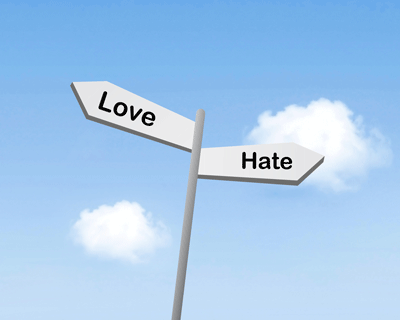When the most heinous crimes occur— murders, mass shootings, serial killings— much of the focus understandably turns to the victims and their grieving families who struggle to make sense of senseless violence.
The perpetrators have families, too, who often are horrified and guilt-ridden by what happened. Even the famous are not immune.
Olympic gymnast Simone Biles revealed recently how agonizing it was to process the news after her brother was charged in a triple homicide. Biles tweeted that her “heart aches” for the victims and their families. But she also asked for respect for her family’s privacy “as we deal with our pain.”
“It’s an understandable request because the pain of an accused perpetrator’s family can be unbearable,” says Dr. Buck Blodgett, who wrote A Message from Jessie and founded The LOVE>hate Project (www.ligth.org) after his daughter was raped and murdered by an ex-boyfriend in her own home.
Even as he mourned his daughter and sought justice, Blodgett felt empathy for the parents of the young man eventually convicted in her death.
“They are good people,” he says. “They unquestionably provided a loving, caring, quality home environment for their children. They had nothing to do with the choices their son made. And they have been through a hell that few can imagine.”
Blodgett has a message for those caught up in either side of a tragedy, and for anyone who struggles to understand why the world is filled with such suffering:
•Don’t lose faith in human goodness. Blodgett remembers during one court hearing when he and his wife passed the defendant’s parents and their family. They exchanged hugs, blessings and sympathies. Later, two members of the family approached him and thanked him “for the grace you have shown our family.” Blodgett says that touched him. “The fact that two families on opposite sides of a murder trial could show each other respect, empathy and love meant everything,” he says. “It brought faith in the goodness of people, and a small measure of healing back into our families.”
•Understand who is really responsible. After his daughter’s murderer was sentenced, Blodgett approached the convicted killer’s mother, hugged her and told her she was a great mom. He imagined she must ask herself numerous questions, including “Could I have done something different?” Blodgett says that’s the wrong question, and says it’s better to ask: “Why did (the killer) choose to use his gift of free will in this way?”
•Choose love over hate. Once tragedies happen they can’t be undone, and the grieving process may never end, but Blodgett is convinced people can create some good out of even the most horrible of events, regardless of which side of that event they fall on. In Blodgett’s case, he founded The LOVE>hate Project with the mission of ending violence against women and promoting love over hate.
“How do you overcome something like this?” Blodgett asks. “With love. With an open heart, an open mind, an open will. For me, the answer is refusing to let hate win; refusing to let it shape me, govern my actions, tell me who I am. Hate is not allowed in my heart.”
Dr. Buck Blodgett is the author of “A Message from Jessie,” the Founder of The LOVE>hate Project and was named the 2015 Resilience in Education Person of the Year. In family chiropractic practice since 1996, he is also the founder of The Chiropractic & Wellness Group, Inc. and Wellness Drs. He and his wife, Joy, were the parents of Jessie, who was murdered when she was 19. Since her death, Blodgett has worked to end violence and to educate, motivate, and inspire young minds to choose love over hate. For more information about Dr. Blodgett and his organization, visit: www.ligth.org.
